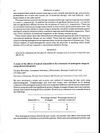 July 1996 in “Annals of Internal Medicine”
July 1996 in “Annals of Internal Medicine” International medical graduates scored higher than U.S. graduates on a medical exam.
 July 1996 in “Annals of Internal Medicine”
July 1996 in “Annals of Internal Medicine” In 1995, international medical graduates did better than U.S. graduates on a medical exam.
 April 2017 in “Australasian Journal of Dermatology”
April 2017 in “Australasian Journal of Dermatology” Different skin conditions show distinct types of vessel inflammation, a new quality of life index for vulval disease is reliable, a certain intrauterine system might be linked to chronic vaginal yeast infections, and oral minoxidil reduces hair loss in women.
 September 2010 in “European Urology Supplements”
September 2010 in “European Urology Supplements” Opioid use may lower PSA levels, suggesting a possible role in prostate cancer control; PSA testing is useful for detecting prostate cancer; serum triglycerides are not linked to prostate cancer risk; and higher urethral PSA levels may be associated with local hormone activity.
 2 citations,
July 2023 in “Journal of cosmetic dermatology”
2 citations,
July 2023 in “Journal of cosmetic dermatology” JAK inhibitors are more effective and safer for treating alopecia areata than dupilumab and apremilast.
 July 1989 in “British Journal of Dermatology”
July 1989 in “British Journal of Dermatology” Minoxidil helps increase hair growth and density in people with hair loss, with higher concentrations giving better results.
 1 citations,
December 2022 in “Journal of cosmetic dermatology”
1 citations,
December 2022 in “Journal of cosmetic dermatology” The combination of vitamin D analogues with potent steroids is a favorable treatment for alopecia areata with fewer side effects.
 45 citations,
April 2019 in “International Immunology”
45 citations,
April 2019 in “International Immunology” The study concluded that immune cells attacking hair follicles cause hair loss in alopecia, with genetics and environment also playing a role, and highlighted the potential of certain treatments.
35 citations,
August 2009 in “Journal of the American Academy of Dermatology” Melanocytes might be targeted by the immune system in people with alopecia areata, but more research is needed.
3 citations,
January 2022 in “Journal of The American Academy of Dermatology” 1 mg/day of low-dose oral minoxidil is effective and safe for treating female hair loss.
 2 citations,
August 2022 in “JAAD case reports”
2 citations,
August 2022 in “JAAD case reports” COVID-19 vaccines may rarely worsen hair loss in people with severe alopecia, but the benefits of vaccination still outweigh this risk.
 1 citations,
September 2023 in “Dermatology and Therapy”
1 citations,
September 2023 in “Dermatology and Therapy” Baricitinib helps improve hair growth in severe alopecia, with better results in less severe cases and higher doses working faster.
1 citations,
January 2019 in “Indian journal of paediatric dermatology” Kids with alopecia areata had lower vitamin D levels than healthy kids.
 October 2024 in “Asian Journal of Pharmaceutical and Clinical Research”
October 2024 in “Asian Journal of Pharmaceutical and Clinical Research” Topical methotrexate is more effective and as safe as betamethasone for treating alopecia areata.
 June 2024 in “Australasian Journal of Dermatology”
June 2024 in “Australasian Journal of Dermatology” Tofacitinib is safe and effective for treating moderate-to-severe alopecia areata.

Changes in gut and skin bacteria are linked to different hair loss conditions, and treatments like fecal transplants and probiotics might help, but more research is needed.
 August 2023 in “Journal of Cosmetic Dermatology”
August 2023 in “Journal of Cosmetic Dermatology” QR678 Neo® improved seborrheic dermatitis symptoms in a small group of patients.
August 2023 in “Annales de Dermatologie et de Vénéréologie” Non-scarring hair loss in lupus patients often responds well to treatment and doesn't lead to scarring.
 June 2023 in “British Journal of Dermatology”
June 2023 in “British Journal of Dermatology” Baricitinib was effective in treating severe and very severe alopecia areata after 52 weeks.
 December 2022 in “BMC women's health”
December 2022 in “BMC women's health” The CNC® prosthetic system improved body image in breast cancer patients with hair loss from chemotherapy but did not significantly change their psychological wellbeing.
June 2022 in “Research journal of topical and cosmetic sciences” Trichovitals® supplement improves hair thickness, reduces hair loss, and promotes hair growth in young adults.
 137 citations,
May 1984 in “Journal of Investigative Dermatology”
137 citations,
May 1984 in “Journal of Investigative Dermatology” Minoxidil increases blood flow in balding scalps, possibly reversing hair loss.
86 citations,
November 2020 in “Annals of Oncology” Early intervention and tailored management can reduce skin side effects from cancer treatments.
 39 citations,
April 2011 in “International Journal of Dermatology”
39 citations,
April 2011 in “International Journal of Dermatology” Skin diseases are very common in poor areas, and there's a need for affordable ways to manage and improve skin health.
20 citations,
December 2021 in “Journal of the American Academy of Dermatology” Continuous treatment with ritlecitinib and brepocitinib is needed to maintain hair regrowth in alopecia areata.
 13 citations,
April 2022 in “Anais brasileiros de dermatologia/Anais Brasileiros de Dermatologia”
13 citations,
April 2022 in “Anais brasileiros de dermatologia/Anais Brasileiros de Dermatologia” The document concludes that more research is needed to find effective treatments for Lichen planopilaris and Frontal fibrosing alopecia.
 6 citations,
May 2022 in “Frontiers in Medicine”
6 citations,
May 2022 in “Frontiers in Medicine” The study suggests pandemic stress might worsen or trigger hair loss problems.
 4 citations,
October 2022 in “Genes”
4 citations,
October 2022 in “Genes” Our microbiome may affect the development of the hair loss condition Alopecia Areata, but more research is needed to understand this relationship.
 4 citations,
March 2022 in “Dermatology and Therapy”
4 citations,
March 2022 in “Dermatology and Therapy” People with moderate hair loss from Alopecia Areata feel more impacted than those with no or almost complete hair loss, and are more likely to seek treatment.
 4 citations,
November 2021 in “Cancers”
4 citations,
November 2021 in “Cancers” The document concludes that understanding and managing hair loss in cancer patients is important, and more research is needed for better treatments.























